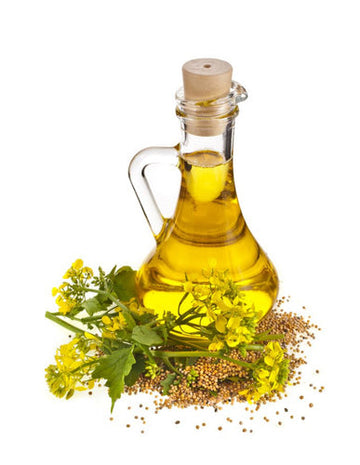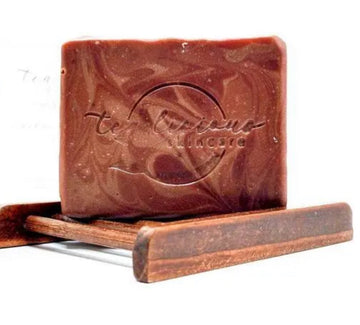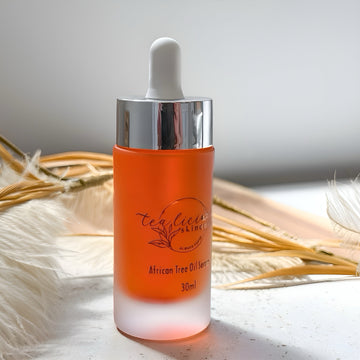Let's be honest - when it comes to our skincare and beauty routines, most of us have been conditioned to simply trust that the products we're using are safe. After all, they're on the shelves of our favorite stores, so they must be fine, right? Wrong. The harsh reality is that the beauty industry is rife with harmful, toxic chemicals that can wreak havoc on our complexions and our overall health.
But don't worry, I'm here to shed some light on the dirty little secrets of the cosmetics world and empower you to make more informed, conscious choices when it comes to the products you're putting on your skin. Because your complexion (and your well-being) deserve so much better than sketchy synthetic ingredients and unregulated formulas.
So, grab a cup of your favorite tea, get cozy, and let's dive into the world of natural, clean beauty. I'm about to show you how to identify and avoid the most common toxic offenders in skincare and cosmetics - and introduce you to the transformative power of natural ingredients in skincare.
Natural ingredients in skincare: the key to safe, effective beauty
Let's start with the basics - what exactly makes a natural skincare product "clean" and safe, compared to its conventional counterparts? It all comes down to the ingredients. You see, the beauty industry is largely self-regulated, which means that many synthetic chemicals and potentially harmful additives are allowed to slip through the cracks and end up in our favorite serums, moisturizers, and makeup.
But the clean beauty movement is changing all that. Driven by savvy, health-conscious consumers, natural skincare brands are leading the charge in formulating high-performance products that prioritize safe, sustainable botanicals over harsh, synthetic compounds. And the results speak for themselves - radiant, glowing complexions that are nourished from the inside out.
Take, for example, the humble aloe vera plant. This botanical powerhouse has been revered for its soothing, hydrating, and even wound-healing properties for centuries. But did you know that the specific compounds within aloe, like acemannan and polysaccharides, have been extensively studied for their skin-nourishing benefits? When formulated properly, aloe can help calm inflammation, boost moisture levels, and even promote collagen production - without any of the irritating, toxic side effects of synthetic ingredients.
Or how about bakuchiol - a plant-based retinol alternative derived from the babchi plant? Research has shown that bakuchiol can deliver many of the same anti-aging benefits as retinol, like reduced wrinkles and improved skin texture, but with a gentler, more soothing profile. This makes it an ideal natural ingredient for those looking to combat the signs of aging without subjecting their skin to harsh, drying retinoids.
And those are just the tip of the iceberg when it comes to the incredible natural ingredients revolutionizing the beauty industry. Snow mushroom, tremella mushroom, and nutrient-dense plant oils like rosehip and marula are just a few examples of the powerful, skin-transforming botanicals taking center stage in clean beauty formulas.
Clean beauty trends: the rise of transparent, sustainable skincare
Of course, the clean beauty movement is about more than just the ingredients themselves. It's also about the broader shift towards transparency, sustainability, and ethical practices in the beauty industry. As consumers become more conscious of the environmental and health impact of their purchases, they're demanding more accountability from the brands they support.
And natural skincare brands are rising to the challenge. They're not only formulating their products with safe, sustainable botanicals, but they're also revolutionizing the way we think about beauty packaging. Gone are the days of heavy, non-recyclable plastic bottles and jars. Innovative clean beauty companies are embracing a future where beauty packaging is not only functional, but also kind to the environment.
Think refillable glass containers, airless pumps made from recycled materials, and even compostable, plantable labels. By prioritizing sustainable design, these brands are sending a powerful message - that true skin health and radiance can only be achieved when we're also nurturing the planet.
But it's not just about the packaging itself - the entire supply chain and manufacturing process needs to be examined through a sustainability lens. Ethical ingredient sourcing, renewable energy usage, and water conservation efforts all play a crucial role in minimizing a brand's environmental impact.
By supporting natural, clean beauty companies that prioritize transparency and green practices, we can collectively work towards a future where our skincare and cosmetics no longer come at the cost of our health and the health of our planet. It's a win-win for our complexions and the environment.
How to identify toxic ingredients in beauty products
Now that we've covered the foundations of natural, clean beauty, let's dive into the nitty-gritty - how to actually identify and avoid the harmful, toxic ingredients that are all too common in conventional skincare and cosmetics.
The first step is to become a savvy label reader. Just like with the food we consume, the ingredients listed on our beauty products can tell us a lot about what we're actually putting on our skin. And unfortunately, the beauty industry is rife with sketchy, synthetic compounds that can cause a whole host of issues, from skin irritation to hormone disruption.
Some of the most common toxic offenders to watch out for include:
Parabens
These preservatives are used to prevent microbial growth in beauty products, but they've been linked to hormone disruption and even an increased risk of breast cancer.
Phthalates: Often found in fragrances, these chemicals can interfere with the endocrine system and have been associated with reproductive and developmental issues.
Formaldehyde-releasing preservatives: While formaldehyde itself is a known carcinogen, these sneaky preservatives can release the chemical over time, exposing users to its harmful effects.
Synthetic fragrances
The term "fragrance" on a label can actually encompass a complex mixture of hundreds of undisclosed chemicals, many of which are irritating and potentially toxic.
Oxybenzone: A common chemical sunscreen ingredient, oxybenzone has been shown to disrupt hormone function and contribute to coral reef bleaching.
The list goes on, but the key is to be on the lookout for these and other red-flag ingredients, and to steer clear of any products that contain them. Instead, opt for natural, clean beauty brands that are transparent about their formulations and prioritize safe, sustainable botanicals.
DIY natural skincare recipes: taking control of your skin's health
Of course, navigating the world of natural, clean beauty isn't just about finding the right store-bought products - it's also about the empowering world of DIY skincare. For the more hands-on beauty enthusiasts out there, creating your own natural formulas can be an incredibly rewarding experience. Not only do you get to customize your products to your exact skin needs, but you also gain a deeper understanding of the science behind effective, non-toxic skincare.
That said, diving into DIY natural skincare isn't as simple as just mixing a few ingredients together. There are a lot of important factors to consider, such as ingredient compatibility, proper extraction methods, and preservative systems. Rushing into homemade beauty without the proper knowledge can lead to unstable, ineffective, or even unsafe formulas.
That's why I always recommend starting with well-tested, expert-approved DIY natural skincare recipes. Reputable natural beauty blogs and books are great resources for finding recipes that have been thoroughly vetted for efficacy and safety. And don't be afraid to experiment and tweak the formulas to suit your unique skin type and preferences.
Remember, the key to successful DIY natural skincare is patience, attention to detail, and a willingness to learn. With the right approach, you can create luxurious, high-performing products that rival anything you'd find on store shelves - all while knowing exactly what's going into them.
Skincare for sensitive skin: finding natural solutions that soothe and nourish
For those with sensitive skin, navigating the world of natural, clean beauty can feel especially daunting. After all, even the gentlest of botanical ingredients can sometimes cause irritation or reactions. But the good news is that there are plenty of natural formulas out there that are specifically designed for delicate complexions.
The key is to stick to soothing, nourishing ingredients that are known to be non-irritating. Think calming botanicals like chamomile, centella, and green tea, as well as hydrating, barrier-repairing oils and butters. Gentle cleansers that avoid harsh surfactants and exfoliants that are free of abrasive particles are also crucial for sensitive skin.
It's also important to build up your tolerance slowly when incorporating new natural products. Start with just one or two items and observe how your skin reacts before adding more. And be wary of natural ingredients that are known sensitizers, like essential oils or certain plant extracts.
With the right natural skincare regimen, even the most delicate skin can achieve a healthy, radiant glow. It just takes a little extra care and attention to find the perfect formulas for your unique needs.
Natural anti-aging skincare: harnessing the power of plants to fight the signs of aging
Of course, no discussion of clean, natural beauty would be complete without touching on the anti-aging benefits of botanical-based formulas. As we age, our skin undergoes a variety of changes - from the loss of collagen and elasticity to the appearance of fine lines and wrinkles. But nature has provided us with a wealth of potent, youth-boosting ingredients to help combat these signs of aging.
Take retinol, for example - a vitamin A derivative that's long been hailed as a skincare superhero for its ability to improve skin texture, reduce wrinkles, and enhance cell turnover. While synthetic retinoids can be effective, they also tend to be harsh and irritating for many skin types. Enter bakuchiol, the plant-based retinol alternative we discussed earlier. Research has shown that bakuchiol can deliver many of the same anti-aging benefits as retinol, but with a gentler, more soothing profile.
And that's just the tip of the natural anti-aging iceberg. Ingredients like vitamin C, niacinamide, and alpha hydroxy acids (derived from fruits and other botanicals) can also work wonders for reducing the visible signs of aging. When formulated properly, these natural powerhouses can help brighten, firm, and smooth the skin for a more youthful, radiant complexion.
Of course, as with any skincare routine, it's important to approach natural anti-aging formulas with patience and consistency. Rome wasn't built in a day, and the same goes for achieving your skin goals. But by incorporating high-performance botanical actives into your regimen, you can take a major step towards reclaiming your skin's youthful glow - without subjecting it to harsh, synthetic ingredients.
Ethical ingredient sourcing: the foundation of truly safe, sustainable natural beauty
But perhaps one of the most important factors in achieving healthy, radiant skin through natural means is the concept of ethical ingredient sourcing. As consumers become more conscious of the environmental and social impact of their purchases, brands that prioritize transparency and fair trade practices are rising to the top.
After all, what's the point of using natural, botanical-based skincare if the ingredients themselves aren't being harvested and processed in a sustainable, ethical manner? That's why it's crucial to do your research and support natural, clean beauty brands that are committed to responsible sourcing.
Take Tea-Licious Skincare, for example. This brand not only formulates its products with potent natural actives, but it also sources those ingredients from ethical suppliers who prioritize sustainable farming methods and fair labor. This ensures that not only are the botanicals, oils, and extracts of the highest quality, but that the communities and ecosystems from which they're derived are also being supported and protected.
By prioritizing ethical ingredient sourcing, natural, clean beauty brands are sending a powerful message - that true skin health and radiance can only be achieved when we're also nurturing the planet and its people. It's a holistic approach to beauty that's not only better for our complexions, but also for the world around us.
The future of skincare is clean, natural (and it's closer than you think)
As I reflect on my own journey in the world of natural, clean beauty, I'm constantly in awe of the incredible power of plants and the transformative effects they can have on our complexions. From soothing inflammation to boosting collagen production, the science behind effective, non-toxic formulas is both fascinating and empowering.
So, if you're ready to take your skincare routine to the next level and experience the benefits of high-performance, sustainable natural ingredients, I encourage you to dive in and explore. Start by researching trusted natural, clean beauty brands, familiarizing yourself with key botanical actives, and perhaps even trying your hand at a DIY natural skincare recipe or two.
#NaturalIngredients #CleanBeautyTrends #SustainablePackaging #DIYNatural SkincareRecipes #SkincareforSensitive Skin #NaturalAnti-AgingSkincare #EthicalIngredientSourcing






